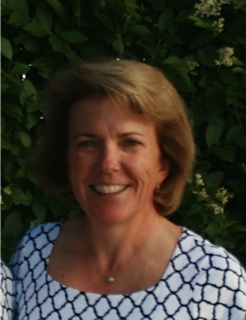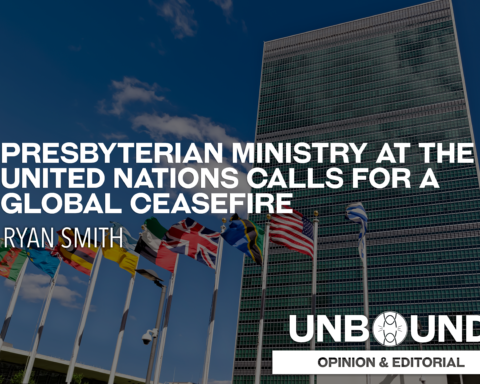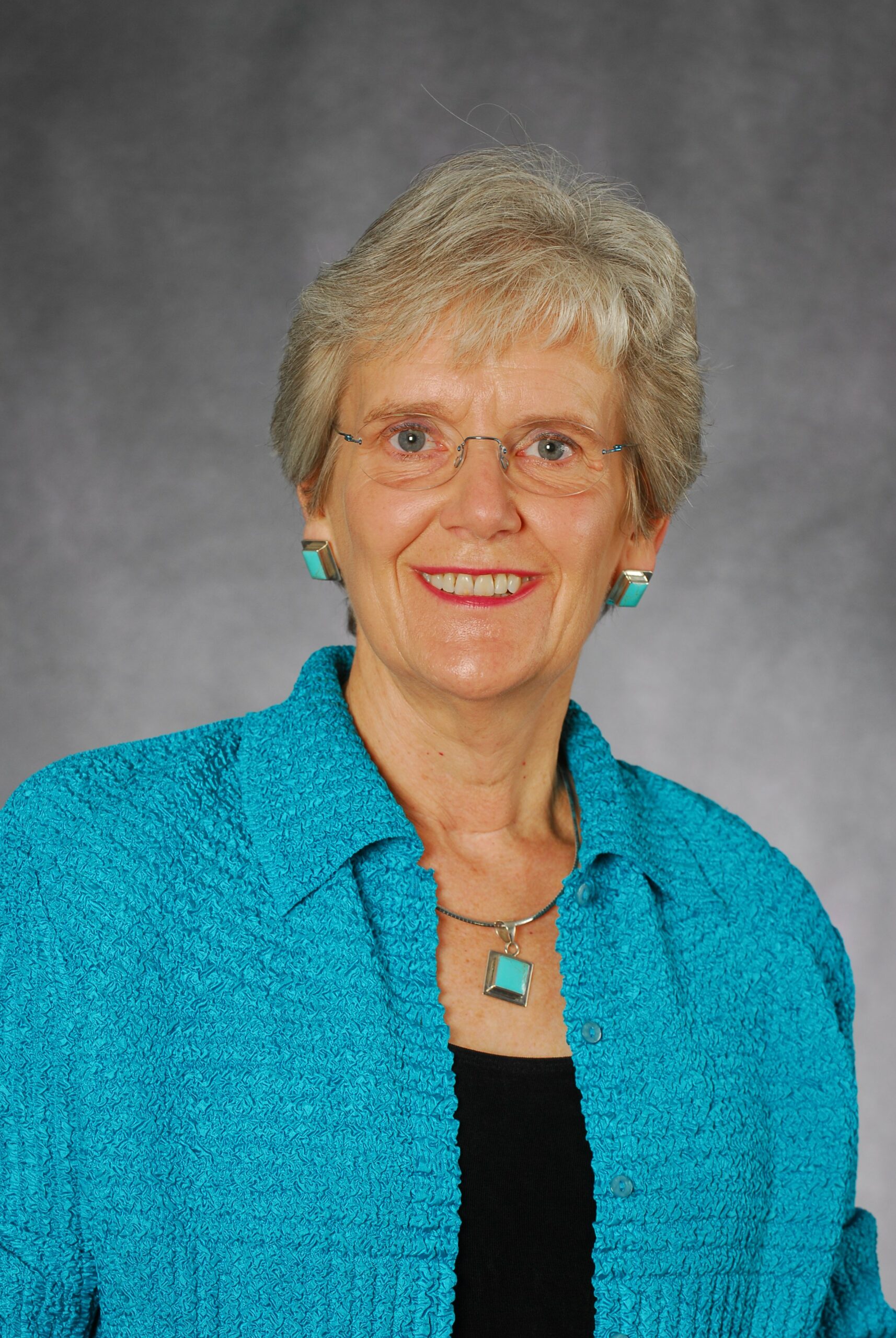 View and Print as PDF.
View and Print as PDF.

As a rookie commissioner and committee moderator for the Peacemaking and International Issues committee (not the Middle East), I came to the 220th General Assembly eager to listen, to learn, and to act together with committee members and fellow commissioners. The business before our committee included challenging situations in our world and a call to discuss what peace and peacemaking mean in the 21st century.
Our forty-four commissioners gathered Sunday night with hearts and minds open to getting to know one another and to working together. This spirit infused our two days as we worked through the business before us, seeking to honor both the issues important to our presbyteries and the Presbyterian mandates to raise the profile of women, children, and all, not just Christian, refugees.
From the beginning, committee members recognized the importance of the directives in the overtures but concurrently felt the need to offer specific ways for the folks back home to take action. For example, while the directives to the Securities and Exchange Commission (SEC), the Stated Clerk, the U.S. Government, and others, regarding the situation in the Democratic Republic of the Congo, lift up the voice of the church, the commissioners wanted to give churches and presbyteries an opportunity to act by directly investing in the lives of the people and by lifting up the Build Congo’s Schools Project through the PC(USA)’s Medical Benevolence Foundation.
Moreover, while another overture affirms support for the United Nations and encourages the U.S. Government to pursue multilateral diplomacy over unilateral force and to ratify major international treaties still pending (such as the Convention on the Rights of the Child), the overture and its amendments also call on individuals, congregations, seminaries, and colleges to engage directly the Presbyterian Ministry at the United Nations.
___________________________________________
From the beginning, committee members recognized the importance of the directives in the overtures but concurrently felt the need to offer specific ways for the folks back home
to take action.
___________________________________________
Another item, this one from the Advisory Committee on Social Witness Policy (ACSWP), not only identified significant trends and developments in human rights, but also concluded each of its three focuses (women’s reproductive health care, workers’ rights, and domestic civil liberties) with a call to action and a listing of specific ways Presbyterians can get involved. For instance, on the subject of workers’ rights, the Human Rights Update spells out how we can engage worker justice issues in our communities and also be informed consumers by buying fair trade products, considering faith-based or socially responsible investing (such as Oikocredit), and refusing to purchase products identified by the Department of Labor’s List of Goods Produced by Child Labor or Forced Labor.
We had the special opportunity of devoting an evening to conversation with the Peace Discernment Steering Committee of ACSWP on its interim report. Its charge from the 219th General Assembly is to update its thirty-year-old overall policy stance in light of significant international changes that have transformed widely held notions of what constitutes peace and violence. With that updating, the church’s peace programs guided by assembly policy would, in turn, also be updated. That evening gave us an opportunity to get away from Robert’s Rules and to sit back and think about what peace is: in our lives, in our homes, and in our communities. That evening also started a yearlong process of community discernment that is even now taking place among congregations.
Once we entered plenary, we retained our sense of community, as it was wonderful to see familiar faces around the room. Our committee report was scheduled toward the end of the agenda, and, given the time crunch at the end of the week, our report was delivered as a consent agenda at 12:30 am on Friday. While we honored the commissioners’ time, I still feel that I did not honor the committee’s work to the degree I should have. I hope the 221st Assembly will be able to honor all work done at the GA. That said, the larger issue is how we take up these important issues, themes, and work in our churches and presbyteries. Frankly, it is a difficult challenge, but I know over forty people whom I hope will be those voices in their communities as we seek God’s will in our discussions and in our actions.
See more articles like this one from the Oct 2012 issue, “The Backstory of General Assembly”
__________________________
Author Bio: Laura Phillips is a New Jersey Presbyterian, active in her Montclair church and Newark Presbytery. She works in Newark at TEAM Schools, a KIPP Region, and is married with two children in college.





Unbound Social